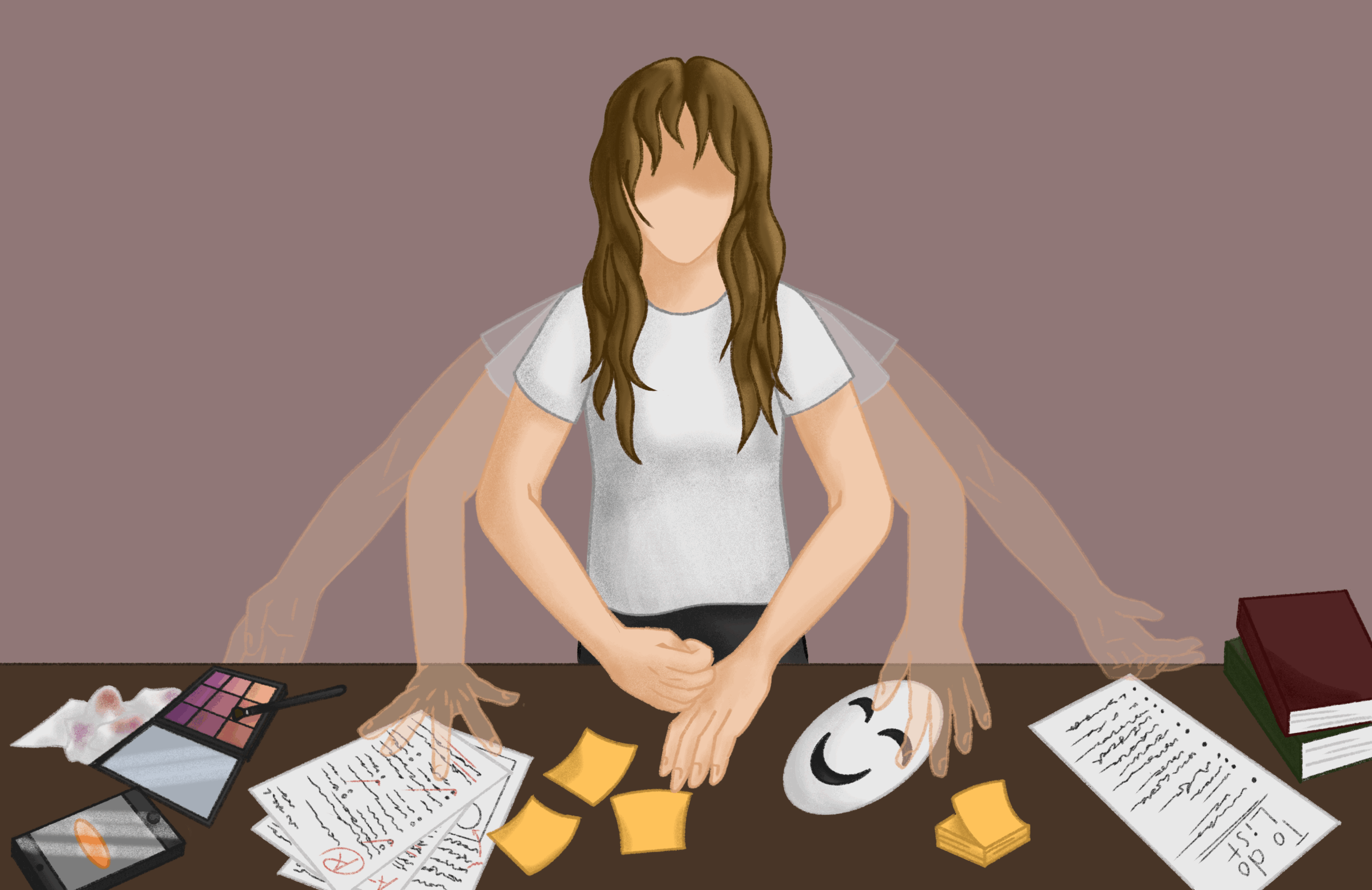
Eldest Daughter Syndrome: The role of older sisters and social media
I grew up portraying stereotypes such as a need for control and hyper-independency. I tend to bottle up my emotions and keep to myself when I get overwhelmed.
I strive for academic achievement and feel guilty for “not studying enough” or getting what I consider a bad grade. I don’t like being told what to do, or how to do it, and would much rather figure things out myself than ask for help.
When I started to get into social media I stumbled upon “eldest daughter syndrome,” an undiagnosable but relatable phenomenon that describes the pressures and responsibilities that first born daughters tend to experience. It often portrays eldest daughters as the family support system, trauma carriers and a co-parent in the families. As an eldest daughter I found that I related to the symptoms described and wanted to find out more.
The founder of Adlerian or individual psychology, Alfred Adler, created a birth order theory to explain how differences in sibling order affect our personalities. In this birth order theory most firstborns experience perfectionism, overachievement, a need for control, protectiveness, hyper-independency and empathy. Gender roles and social norms also have an influence on the person, even if their parents try their best to raise their kids equally.
Having high expectations of achievements for myself makes it harder to take time for rest and relaxation. I habitually keep myself busy so as to not feel unproductive and think about what else I need to do. Whether it’s social gatherings or work, I have a need for something to be on my plate. When I feel unproductive I tend to feel like I’m doing something wrong or that something is wrong with me. I cope by filling my time with small hobbies like crochet and journaling so that I don’t feel this way.
Scrolling through social media, I am drawn to others who share this experience as an older sister myself. The Instagram account @eldestdaughterclub shares advice and builds a community of eldest daughters. Every month a social opportunity is hosted online and in person to connect with other big sisters while reflecting on different aspects of being an eldest daughter.
In some cases you may end up as a support beam for the parents instead of receiving the proper support yourself. I struggle with making sure there is a boundary between my parents and me as I get told important information first and get to know more personal things that my sister doesn’t.
This role reversal disrupts the natural process of maturing and can leave the child with mental health issues. A study by University of Illinois Urbana-Champaign found that parentification, or role reversal of the parent and their child, is a cause of the fast maturity that eldest children can experience.
In my case this quicker maturity is relatable. Whether it be partly due to the experience of severe anxiety and depression that manifested during quarantine or not, I often feel as if I’ve grown up too quickly. Throughout eighth and ninth grade I was continuously told that I looked and acted older than I really was. I felt at times displaced from those in my age group because I’m stimulated when people are on or close to the same level of emotional maturity that I experience. Therefore, I was much more comfortable having conversations with those older than me.
Through therapy I was able to work on being accustomed with my different emotional demands that diverged me from others. I became better at opening up and getting to know people regardless of our possible maturity gap.
Additionally I learned to deal with many of the problems that I face like anxiety and depression, and I also learned how to let myself depend on others. This helped create healthier habits to fall into. Instead of keeping everything to myself, I gained skills that helped me reach out to others for help, something that my eldest daughter hyper independence prevented me from doing.
Eldest daughter syndrome can include people pleasing, or an intense sense of responsibility for others. This induces anxiety and makes it much harder to go about your life without thinking of others. Most of the time I witness my friends who experience this anxiety keep everything to themselves so as to not make things more difficult for others.
When our parents are not available I end up guiding and giving advice to my younger sister if she needs help. It often comes across as overbearing and annoying to her, while I mean it as an attempt to help. I get stuck wanting to be patient with her, but at the same time I want to tell her to gather herself together and understand that I’m just trying to help.
I was also bossy when I was younger. I took control of situations like what we should watch or play, convincing her to follow my lead and pick what I wanted. There are still times when I sway her opinion, but I feel that this manipulation can be part of growing and having siblings.
Although I experience hard times as an eldest daughter, I find joy in it. The best part is watching my youngest sister grow up, but finding a community of people that I can relate to is a huge bonus to this experience.



